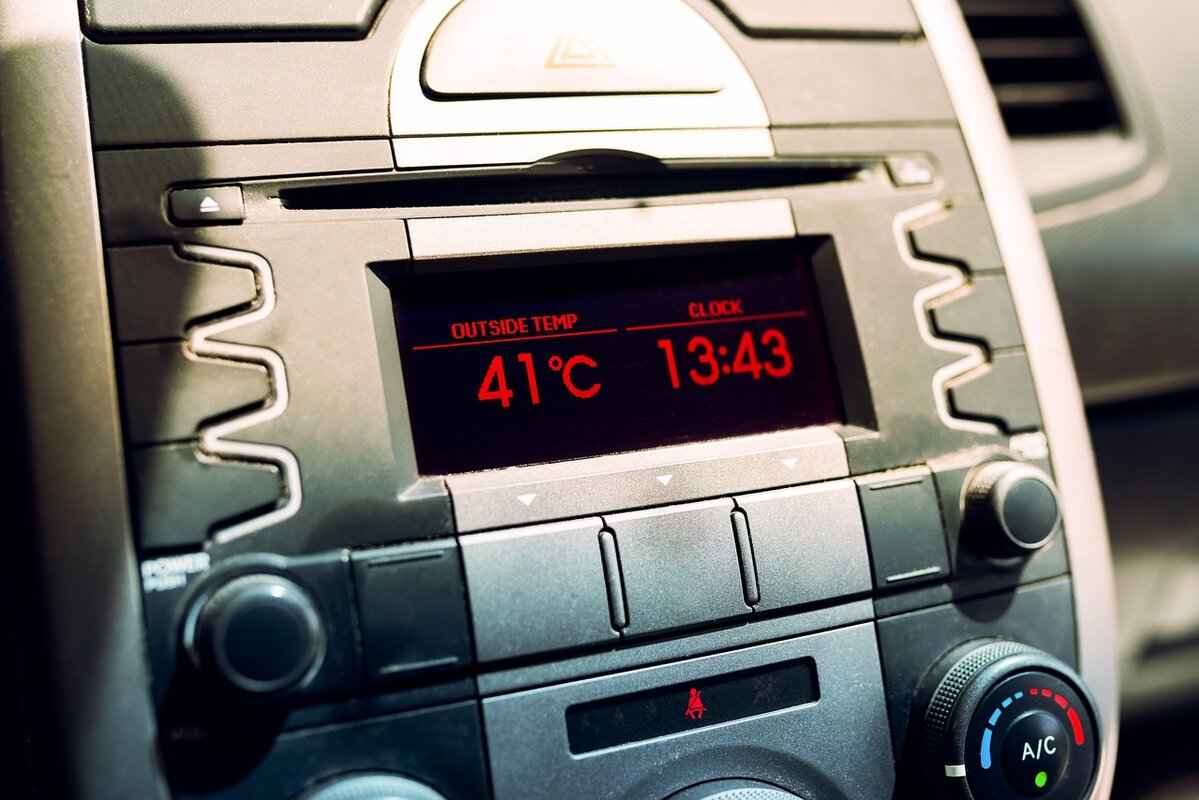This article explores how to identify whether your home has a heat pump system, detailing key signs and symptoms, along with expert insights to help you understand this essential HVAC component.
Understanding your heating system is crucial for maintaining comfort and energy efficiency in your home. One common yet often overlooked system is the heat pump. Unlike traditional heating systems that generate heat, heat pumps transfer heat, making them a popular choice for energy-conscious homeowners.
A heat pump is an energy-efficient HVAC system that can both heat and cool your home. It works by transferring heat from one place to another, using refrigerant and a compressor. There are various types of heat pumps, including air-source, ground-source (geothermal), and water-source pumps. Familiarizing yourself with these can help you identify if your home has one.
Recognizing the signs of a heat pump can help you determine if your home uses this system. Look for specific indicators, such as:
- Thermostat Type: Heat pumps typically use digital thermostats with a heat/cool setting.
- Auxiliary Heat Settings: If your thermostat includes an auxiliary heat setting, this is a strong sign of a heat pump.
- System Controls: Heat pumps often have unique control settings compared to traditional heating systems.
The outdoor unit of a heat pump is distinct in appearance. Look for the following features:
- Fan and Coils: A heat pump usually has a fan and coils visible on the outside.
- Size: Heat pumps are generally larger than traditional air conditioning units.
Observing how your heating system operates can provide insights into whether it’s a heat pump. Consider the following:
- Noise Levels: Heat pumps typically operate more quietly than traditional heating systems.
- Refrigerant Lines: Heat pumps use refrigerant lines for heat transfer, which differ from standard ductwork.
Heat pumps are known for their energy efficiency. If your energy bills are lower than average for your home’s size, you might have a heat pump contributing to these savings. Here are some indicators:
- SEER and HSPF Ratings: Understanding the Seasonal Energy Efficiency Ratio (SEER) and Heating Seasonal Performance Factor (HSPF) ratings can help you identify a heat pump.
- Consistent Temperature Control: If your home maintains consistent temperatures throughout different seasons, this may suggest the presence of a heat pump.
If you’re still unsure whether you have a heat pump, consider hiring a professional HVAC technician. They can provide a thorough inspection and confirm the type of heating system in your home. Additionally, they can offer insights into:
- Maintenance Needs: Heat pumps require specific maintenance practices to operate efficiently.
- Identifying Common Issues: Familiarizing yourself with common heat pump issues can aid in identification.
In summary, understanding whether your home has a heat pump involves recognizing specific signs and symptoms, from the type of thermostat to the characteristics of the outdoor unit. By being informed, you can ensure that your heating system operates efficiently and effectively, providing comfort throughout the year.

What is a Heat Pump?
Understanding what a heat pump is essential for homeowners looking to optimize their heating and cooling systems. A heat pump is a versatile appliance that transfers heat from one place to another, rather than generating heat directly. This characteristic makes heat pumps a highly energy-efficient option for climate control in residential spaces.
Heat pumps operate based on the principles of thermodynamics, utilizing a refrigerant to absorb and release heat. They can function effectively in both heating and cooling modes, making them a dual-purpose system. In the winter, heat pumps extract heat from the outside air or ground and transfer it indoors, while in the summer, they reverse the process to cool the home. This two-way operation is one of the key features that sets heat pumps apart from traditional heating systems.
There are two primary types of heat pumps: air-source and ground-source (also known as geothermal). Air-source heat pumps are the most common, using the outside air as a heat source or sink. They are relatively easy to install and can be highly efficient in moderate climates. Ground-source heat pumps, on the other hand, take advantage of the stable temperatures found underground. Although they require more extensive installation, they can offer higher efficiency and lower operating costs over time.
Another important aspect of heat pumps is their environmental impact. By utilizing renewable sources of energy, such as ambient air or ground heat, heat pumps can significantly reduce greenhouse gas emissions compared to conventional fossil fuel systems. This makes them an attractive option for environmentally conscious homeowners.
When considering a heat pump, it’s also essential to look at its efficiency ratings. The Seasonal Energy Efficiency Ratio (SEER) and Heating Seasonal Performance Factor (HSPF) are two critical metrics that indicate a heat pump’s efficiency. A higher SEER or HSPF rating means better energy efficiency, which can lead to substantial savings on energy bills.
In addition to efficiency, homeowners should also be aware of the maintenance requirements of heat pumps. Regular maintenance, such as filter changes and system checks, is crucial to ensure optimal performance and longevity. Understanding these needs can help homeowners keep their systems running smoothly and efficiently.
In summary, a heat pump is an innovative solution for heating and cooling that offers numerous benefits, including energy efficiency, dual functionality, and reduced environmental impact. By understanding the basic functions and types of heat pumps, homeowners can make informed decisions about their HVAC systems and enjoy a comfortable living environment year-round.

Common Signs You Have a Heat Pump
When it comes to understanding your home’s heating system, recognizing the signs of a heat pump can be incredibly beneficial. Heat pumps are unique in their operation, and identifying them can help you make informed decisions about your home’s energy efficiency and comfort. Below, we delve into the common indicators that suggest your home may be using a heat pump.
- Thermostat Type: One of the first things to check is your thermostat. If it features a heat/cool switch or is a digital model, it may indicate the presence of a heat pump system. Traditional heating systems often use simpler thermostats, while heat pumps require more advanced controls.
- Auxiliary Heat Settings: If your thermostat has an auxiliary heat setting, this is a strong signal that a heat pump is in play. This feature is designed to provide extra heating during particularly cold spells when the heat pump alone may not suffice.
- Unique System Controls: Familiarizing yourself with your system’s controls can also provide clues. Heat pumps often have distinct settings that differ from conventional heating systems, such as variable speed fans or specific modes for heating and cooling.
Another area to examine is your outdoor unit. The outdoor component of a heat pump typically has a different appearance compared to traditional air conditioning or heating units. Look for:
- Distinctive Design: Heat pumps often feature a compact design with a fan and coils visible. If the unit looks different from typical air conditioning systems, it may be a heat pump.
- Refrigerant Lines: Check for the presence of refrigerant lines. These are essential for the heat transfer process in heat pumps and are a clear indicator of this system.
Observing how your heating system operates can also provide valuable insights. Heat pumps typically exhibit unique operational characteristics:
- Noise Levels: If your system operates more quietly than traditional heating systems, it may be a heat pump. These units are designed to function with minimal noise, enhancing comfort in your living space.
- Consistent Temperature Control: Heat pumps are known for their ability to maintain consistent indoor temperatures throughout the year. If you notice that your home stays comfortably warm in winter and cool in summer, it’s a strong indication of a heat pump system.
Finally, consider the energy efficiency of your heating system. Heat pumps are renowned for their energy-saving capabilities:
- Lower Energy Bills: If your energy bills are significantly lower than average for your home’s size, a heat pump may be contributing to those savings.
- SEER and HSPF Ratings: Understanding your system’s Seasonal Energy Efficiency Ratio (SEER) and Heating Seasonal Performance Factor (HSPF) ratings can help identify a heat pump. Generally, higher ratings indicate a more efficient heat pump system.
In conclusion, recognizing the signs of a heat pump in your home can lead to better energy management and comfort. By examining your thermostat, outdoor unit, operational characteristics, and energy efficiency, you can confidently determine whether you have a heat pump system installed. If you’re still uncertain, consulting a professional HVAC technician can provide you with the definitive answers you need.
Check Your Thermostat
When it comes to determining whether your home is equipped with a heat pump, one of the first places to check is your thermostat. This device plays a crucial role in regulating your home’s temperature and can provide significant clues about your heating system. By understanding the features of your thermostat, you can better assess whether you have a heat pump installed.
A heat pump typically utilizes a specific type of thermostat designed to optimize its performance. If your thermostat is digital or features a heat/cool switch, this may indicate the presence of a heat pump system. Unlike traditional heating systems, heat pumps can both heat and cool your home, and thus require a thermostat that can manage these functions effectively.
Many modern heat pump thermostats come equipped with advanced features such as programmable settings and Wi-Fi connectivity. These features allow homeowners to control their heating and cooling schedules remotely, enhancing energy efficiency. If your thermostat has these capabilities, it’s a strong indicator that you may have a heat pump.
Another important aspect to consider is the presence of auxiliary heat settings. Many heat pump thermostats include an auxiliary heat option, which is used to provide additional warmth during extremely cold weather. This feature is essential for maintaining comfort in colder climates, where a heat pump alone may struggle to keep up with heating demands. If you notice this setting on your thermostat, it further suggests that your system is indeed a heat pump.
Additionally, if your thermostat displays error codes or alerts, this can also be a sign of a heat pump. These codes often relate to the operational status of the heat pump, helping you identify any issues that may arise. Familiarizing yourself with the user manual can provide valuable insights into what these codes mean and how they relate to the functionality of your heating system.
When checking your thermostat, also pay attention to its location. A thermostat placed in an area that is not representative of your home’s overall temperature can lead to inefficient heating or cooling. Ideally, it should be located in a central area away from drafts, direct sunlight, and heat-producing appliances. This ensures that the thermostat accurately reflects the temperature of your living space, allowing the heat pump to operate effectively.
In summary, examining your thermostat is a vital step in determining whether you have a heat pump system. Look for features such as a heat/cool switch, auxiliary heat settings, and advanced functionalities like programmability and Wi-Fi connectivity. Understanding these elements can help you not only identify your heating system but also optimize its performance, ensuring your home remains comfortable throughout the year.
Look for Auxiliary Heat Settings
When considering the functionality of your home’s heating system, one significant feature to observe is the presence of an auxiliary heat setting on your thermostat. This setting is a clear indication that your home may be equipped with a heat pump. Heat pumps are designed to transfer heat rather than generate it, making them an energy-efficient choice for both heating and cooling.
During particularly cold weather, heat pumps may struggle to maintain desired indoor temperatures solely through their primary heating method. This is where the auxiliary heat setting comes into play. The auxiliary heat serves as a supplementary source of warmth, often utilizing electric resistance heating or a backup furnace to ensure your home remains comfortable.
Here are some key points to help you understand why the auxiliary heat setting is important:
- Functionality During Extreme Cold: In regions where temperatures drop significantly, heat pumps may need additional support to provide adequate heating. The auxiliary setting activates automatically or can be manually turned on when the outside temperature is too low for the heat pump to operate efficiently.
- Energy Consumption Awareness: While auxiliary heat is beneficial, it is essential to note that it often consumes more energy than standard heat pump operation. Homeowners should monitor their energy bills during winter months to assess the impact of using auxiliary heat.
- System Efficiency: If you find that your auxiliary heat is frequently activating, it may indicate that your heat pump is not operating at peak efficiency. This could prompt a need for maintenance or even system replacement.
To effectively utilize your heat pump and its auxiliary heat setting, consider the following:
- Regular Maintenance: Schedule routine maintenance checks with a qualified HVAC technician to ensure your heat pump is functioning efficiently. This can help prevent excessive reliance on auxiliary heat.
- Smart Thermostat Integration: Consider upgrading to a smart thermostat that can better manage your heating settings. These devices can optimize the use of auxiliary heat based on real-time weather conditions and your heating preferences.
- Understand Your Thermostat: Familiarize yourself with your thermostat’s settings and how they correspond to your heat pump’s operation. Knowing when to activate auxiliary heat can help maintain comfort without incurring unnecessary energy costs.
In conclusion, identifying the auxiliary heat setting on your thermostat is a crucial step in determining whether you have a heat pump system. Understanding how this feature works and its implications for energy use can empower homeowners to make informed decisions about their heating systems. By keeping an eye on auxiliary heat usage and engaging in proactive maintenance, you can ensure your home remains warm and energy-efficient throughout the colder months.
Identify the System Controls
When it comes to understanding your heating system, one of the most critical aspects is recognizing the system controls. Heat pumps often feature unique control settings that differ significantly from traditional heating systems. Familiarizing yourself with these controls can not only confirm the type of heating system you have but also enhance your overall comfort and efficiency.
Heat pumps are designed to provide both heating and cooling by transferring heat rather than generating it. This characteristic is reflected in their control settings. Here are some key elements to consider when identifying the system controls of a heat pump:
- Thermostat Type: Heat pumps typically utilize a digital thermostat with advanced settings. Look for features such as a heat/cool switch or a dual-fuel option, which indicates the thermostat can manage both heat pump and auxiliary heating.
- Auxiliary Heat Settings: If your thermostat has an auxiliary heat setting, it’s a strong indicator of a heat pump system. This feature allows the system to supplement heat during extremely cold weather, ensuring consistent indoor temperatures.
- Defrost Cycle Controls: Unlike traditional heating systems, heat pumps require defrost cycles to prevent ice buildup on the outdoor unit. Familiarize yourself with how to activate or monitor this cycle, as it is crucial for maintaining efficiency.
- Variable Speed Settings: Many modern heat pumps come equipped with variable speed compressors, allowing for more precise temperature control. This feature can be identified through the control panel, where you may find options for adjusting the fan speed or heating intensity.
Understanding these controls not only helps you identify a heat pump but also empowers you to operate it effectively. For instance, knowing how to switch between heating and cooling modes can significantly impact your energy efficiency and comfort levels.
Moreover, it’s essential to recognize that heat pumps may have smart technology integrations. Many systems now offer smartphone applications that allow you to monitor and adjust settings remotely. This feature can enhance your ability to manage your home’s climate efficiently, even when you are away.
Another significant aspect of heat pump controls is their energy monitoring capabilities. Some advanced systems provide real-time updates on energy consumption, helping you make informed decisions about your heating and cooling needs. By utilizing these insights, you can optimize your energy usage and potentially reduce your utility bills.
In addition to understanding the controls, it is advisable to consult the user manual specific to your heat pump model. This document contains vital information about the control settings and operational guidelines, ensuring you maximize the benefits of your system.
Lastly, if you are uncertain about any aspect of your heat pump’s controls, consider reaching out to a qualified HVAC technician. They can provide expert guidance and demonstrate how to use the system effectively, ensuring you enjoy the full advantages of your heat pump.
In summary, recognizing and understanding the unique controls of a heat pump is essential for effective operation and maintenance. By familiarizing yourself with these settings, you can confirm the type of heating system in your home and enhance your energy efficiency.
Examine Your Outdoor Unit
When it comes to identifying whether you have a heat pump installed in your home, examining the outdoor unit is a crucial step. The outdoor unit of a heat pump has a unique design and specific features that set it apart from traditional air conditioning systems and gas furnaces. Understanding these characteristics can help you confirm the presence of a heat pump in your outdoor space.
Distinctive Features of Heat Pump Outdoor Units
- Compact Design: Heat pump outdoor units are generally more compact compared to traditional air conditioning units. They are designed to be efficient and often have a streamlined look.
- Coils and Fins: Look for a unit that has exposed coils and fins. These components are essential for heat exchange, and their presence is a strong indicator of a heat pump system.
- Fan Configuration: The outdoor unit typically features a fan that circulates air over the coils. This fan is usually quieter than those found in conventional air conditioning units.
- Refrigerant Lines: Heat pumps utilize refrigerant lines that connect the indoor and outdoor units. These lines are usually insulated and can be seen running from the outdoor unit to the indoor air handler.
Location and Installation
The placement of the outdoor unit can also provide clues. Heat pumps are often installed in locations that allow for optimal airflow, such as on a concrete slab or mounted on brackets. Additionally, they require sufficient space around them for proper ventilation and maintenance access. If you notice a unit situated in a strategic location with ample clearance, it may very well be a heat pump.
Noise Levels
Another aspect to consider is the noise level of the outdoor unit. Heat pumps are designed to operate quietly. If your outdoor unit emits a low hum rather than loud clanking or banging noises, it is likely a heat pump. This quieter operation is one of the advantages of heat pumps, making them a preferred choice for residential areas.
Visual Inspection
Conducting a thorough visual inspection of the outdoor unit can yield further insights. Look for any labels or manufacturer information on the unit itself. Many heat pumps will have a model number and specifications that can help you identify the system. You can also check for energy efficiency ratings, which are often displayed on the unit. A higher SEER (Seasonal Energy Efficiency Ratio) rating indicates a more efficient heat pump.
Consulting with Professionals
If you are still uncertain after your visual inspection, consider consulting with a professional HVAC technician. They can provide expert insights and confirm whether you have a heat pump installed. Technicians can also explain the specific features of your system and guide you on maintenance practices to ensure optimal performance.
In summary, examining your outdoor unit closely can provide valuable information about your heating system. By recognizing the distinctive features and characteristics of heat pump outdoor units, you can confidently determine if a heat pump is installed at your residence. This knowledge not only aids in identifying your system but also empowers you to maintain it effectively for years to come.

Signs of Heat Pump Operation
Understanding the operational characteristics of your heating system is essential in determining whether you have a heat pump. Heat pumps are unique in their functionality, and observing their specific signs can provide valuable insights. Here, we will delve into the key indicators that can help you identify if your heating system is indeed a heat pump.
Heat pumps operate differently from traditional heating systems. By paying attention to their performance and features, you can easily discern their presence. Here are some crucial signs to look for:
- Operational Noise Levels: One of the most noticeable traits of a heat pump is its relatively low noise level. Unlike conventional furnaces or boilers that can be quite loud, heat pumps tend to operate quietly. If you find that your heating system runs with minimal sound, it may be an indication that you have a heat pump.
- Refrigerant Lines: Heat pumps utilize refrigerant lines for transferring heat. These lines are distinct from standard ductwork found in traditional systems. If you notice insulated piping running from the outdoor unit to the indoor unit, this is a strong indicator of a heat pump installation.
- Airflow Patterns: Heat pumps often provide a more even distribution of heat throughout your home. If you experience consistent warmth in different areas without hot or cold spots, this could suggest the presence of a heat pump. Their design allows for efficient airflow, contributing to a balanced indoor climate.
- Defrost Cycle: During colder months, heat pumps may enter a defrost cycle to remove ice buildup on the outdoor unit. If you notice your system occasionally reversing its operation to melt ice, this is a clear sign of a heat pump functioning properly.
- Heating and Cooling Modes: Heat pumps are versatile, capable of both heating and cooling your home. If your thermostat allows you to switch between heating and cooling modes seamlessly, it likely indicates that you have a heat pump system.
In addition to the primary signs mentioned above, there are other factors to consider:
- Consistent Temperature Control: If your home maintains a stable temperature throughout various seasons, this could be a significant indicator of a heat pump. They are designed to regulate indoor climates effectively, providing comfort year-round.
- Energy Efficiency: Heat pumps are known for their energy efficiency. If you notice lower energy bills compared to previous years or similar homes, this could point to the presence of a heat pump. Their ability to transfer heat rather than generate it leads to lower energy consumption.
- Auxiliary Heat Usage: If your thermostat features an auxiliary heat setting, it is a strong indication of a heat pump. This setting is often utilized during extremely cold weather to supplement heating, highlighting the heat pump’s operational characteristics.
By observing these signs and characteristics, you can gain a clearer understanding of whether your heating system is a heat pump. If you are still uncertain, consider consulting a professional HVAC technician for a detailed inspection. They can provide expert insights and confirm the type of heating system you have.
In summary, recognizing the signs of heat pump operation can empower you to make informed decisions about your heating system. From noise levels to airflow patterns, each indicator plays a crucial role in identifying the efficiency and functionality of your home’s heating solution.
Listen for Noise Levels
When it comes to identifying whether your home is equipped with a heat pump, one of the most telling signs is the noise level of your heating system. Unlike traditional heating systems, which can be quite noisy, heat pumps are designed to operate more quietly, providing a more serene indoor environment. If you notice that your heating system runs with minimal sound, it may very well be a heat pump.
Heat pumps utilize a different mechanism for heating and cooling spaces. They transfer heat rather than generating it, which contributes to their quieter operation. This is primarily due to the absence of combustion processes that are common in furnaces and boilers, which can create significant noise. Instead, heat pumps rely on electrical components and a refrigeration cycle, resulting in a more subdued sound profile.
To better understand the implications of noise levels in heating systems, consider the following:
- Sound Levels: Most heat pumps operate at sound levels between 40 to 60 decibels, comparable to a quiet room or a normal conversation. In contrast, traditional heating systems can reach sound levels of 70 decibels or more, similar to a vacuum cleaner.
- Operational Sounds: While heat pumps are generally quiet, they may emit soft sounds such as a gentle hum or whoosh when the system is cycling on or off. These sounds are normal and indicate that the system is functioning properly.
- Seasonal Variations: During colder months, you might hear additional sounds due to the defrost cycle that heat pumps undergo. This cycle is necessary to remove frost buildup on the outdoor unit and typically involves a brief increase in noise as the system works to maintain efficiency.
It’s important to note that while quiet operation is a hallmark of heat pumps, any sudden or unusual noises could indicate a problem. For example, if you hear banging, clanking, or hissing sounds, it may be a sign of a malfunction that requires professional attention. Regular maintenance can help ensure that your heat pump remains in optimal condition and continues to operate quietly.
In summary, if your heating system operates with minimal noise, it is a strong indicator that you might have a heat pump installed in your home. The quiet functionality not only contributes to a peaceful living environment but also reflects the energy-efficient technology that heat pumps embody. Being aware of these characteristics can help you assess your heating system better and ensure that it meets your home’s comfort needs.
Check for Refrigerant Lines
When trying to determine if your home has a heat pump system, one of the most telling indicators is the presence of refrigerant lines. Unlike standard ductwork, which is typically used in traditional heating and cooling systems, refrigerant lines are essential components of heat pumps. These lines facilitate the transfer of heat, making them a significant feature to observe.
What Are Refrigerant Lines?
Refrigerant lines are insulated pipes that carry refrigerant between the indoor and outdoor units of a heat pump. This refrigerant absorbs heat from the air or ground outside your home and transfers it indoors during the winter months. Conversely, in the summer, the process reverses, allowing the heat pump to act as an air conditioner by expelling heat from inside your home to the outside.
Identifying Refrigerant Lines
To check for refrigerant lines, start by locating your outdoor heat pump unit. Typically, these lines are made of copper and are often covered with insulation to enhance energy efficiency. You will usually see two lines: a larger suction line and a smaller liquid line. The suction line is designed to carry low-pressure refrigerant gas back to the compressor, while the liquid line transports high-pressure refrigerant to the indoor unit.
Visual Differences from Ductwork
It’s important to note that refrigerant lines differ significantly from ductwork. Ducts are typically rectangular or round metal or fiberglass conduits that distribute conditioned air throughout your home. In contrast, refrigerant lines are generally smaller in diameter and do not distribute air; instead, they transport refrigerant. Observing these differences can help you quickly identify whether your system is a heat pump.
Signs of Proper Installation
When inspecting refrigerant lines, ensure they are properly installed and insulated. Poor installation can lead to refrigerant leaks, which can severely impact the efficiency of your heat pump. Look for any signs of damage, such as dents or corrosion, which could indicate potential issues that require immediate attention.
What to Do If You Suspect a Problem
If you notice any irregularities with the refrigerant lines, such as unusual noises, frost buildup, or leaks, it is essential to consult a qualified HVAC technician. They can perform a thorough inspection and recommend necessary repairs or maintenance to ensure your heat pump operates efficiently.
Conclusion
In summary, checking for refrigerant lines is a critical step in identifying whether your home has a heat pump system. By understanding their function and appearance, you can distinguish them from traditional ductwork and assess the condition of your heating system. If you have any doubts or concerns, seeking professional advice can provide clarity and ensure your heating system remains in optimal condition.

Energy Efficiency Indicators
Understanding the of your heating system is crucial in determining whether you have a heat pump. Heat pumps are renowned for their ability to provide effective heating and cooling while consuming significantly less energy than traditional systems. This section delves into the various indicators that can help you assess the energy efficiency of your home’s heating system.
One of the most telling signs of a heat pump is your energy bills. If you notice that your energy expenses are consistently lower than average for your home’s size, this can indicate the presence of a heat pump. Heat pumps are designed to transfer heat rather than generate it, which often leads to substantial savings on energy costs. This efficiency is particularly noticeable during peak heating and cooling seasons.
The Seasonal Energy Efficiency Ratio (SEER) and Heating Seasonal Performance Factor (HSPF) are critical metrics that help gauge the efficiency of heat pumps. A higher SEER rating means better energy efficiency in cooling mode, while a higher HSPF indicates better performance in heating mode. Generally, heat pumps with SEER ratings above 14 and HSPF ratings above 8 are considered highly efficient. If your system boasts these ratings, it’s likely a heat pump.
Another indicator of a heat pump’s presence is the ability to maintain consistent indoor temperatures throughout the year. Unlike traditional heating systems that can lead to temperature fluctuations, heat pumps provide a steady and comfortable climate. If you find that your home remains at a stable temperature, regardless of external weather conditions, this may suggest that you have a heat pump.
Heat pumps utilize refrigerant lines to transfer heat, which can be a clear indicator of their existence. These lines differ from standard ductwork and can typically be found running from the outdoor unit to the indoor unit. If you see these lines, it’s a strong indication that your system is a heat pump.
Heat pumps are generally quieter than traditional heating systems. If your heating system operates with minimal noise, this could indicate that you have a heat pump. Traditional furnaces and heaters often produce more sound due to their combustion processes, making a quieter operation a potential sign of a heat pump.
If your thermostat features an auxiliary heat setting, this is a strong indicator of a heat pump system. Auxiliary heat is typically engaged during extremely cold weather when the heat pump may struggle to extract sufficient heat from the outside air. This feature is common in heat pump systems and can help you identify the type of heating system in your home.
If you are still uncertain about the presence of a heat pump in your home, consider seeking a professional assessment from an HVAC technician. They can perform a thorough inspection of your heating system and confirm whether it is a heat pump or another type of heating solution. This step can provide peace of mind and ensure that you are aware of your system’s energy efficiency capabilities.
In conclusion, recognizing the energy efficiency indicators of your heating system can significantly aid in identifying whether you have a heat pump. By examining your energy bills, understanding SEER and HSPF ratings, and observing operational characteristics, you can make an informed assessment. If in doubt, a professional inspection can provide clarity and guidance.
SEER and HSPF Ratings
When evaluating heating systems, understanding the Seasonal Energy Efficiency Ratio (SEER) and Heating Seasonal Performance Factor (HSPF) ratings is crucial. These ratings provide insights into the energy efficiency of heat pumps, which are designed to transfer heat rather than generate it. This makes them a popular choice for homeowners seeking to reduce energy costs and environmental impact.
SEER measures the cooling efficiency of air conditioning systems and heat pumps during the cooling season. The higher the SEER rating, the more efficient the system is at converting electricity into cooling output. For instance, a heat pump with a SEER rating of 16 is more efficient than one with a rating of 13. This efficiency translates into lower energy bills and a reduced carbon footprint.
On the other hand, HSPF evaluates the heating efficiency of heat pumps over the heating season. Similar to SEER, a higher HSPF rating indicates a more efficient system. For example, a heat pump with an HSPF of 9.0 is considered more efficient than one with an HSPF of 7.5. This rating is particularly important in colder climates where heating efficiency can significantly impact energy consumption.
| Rating Type | Description | Significance |
|---|---|---|
| SEER | Measures cooling efficiency | Higher ratings indicate lower energy costs during cooling |
| HSPF | Measures heating efficiency | Higher ratings indicate better performance in heating |
To identify if your home has a heat pump, check the SEER and HSPF ratings on the unit’s label. These ratings can often be found on the manufacturer’s specifications. If your heat pump has a SEER rating above 14 and an HSPF rating above 8, it is considered to be highly efficient. This efficiency not only contributes to lower utility bills but also enhances the overall comfort of your home.
In addition to energy efficiency, understanding these ratings can also help you make informed decisions when purchasing or upgrading your heating and cooling systems. Many homeowners may not realize that investing in a heat pump with high SEER and HSPF ratings can lead to significant savings over the lifespan of the unit. The initial cost may be higher, but the long-term savings on energy bills often justify the investment.
Moreover, heat pumps are known for their versatility. They can provide both heating and cooling, making them a year-round solution for climate control. By utilizing the SEER and HSPF ratings, you can better assess which heat pump will meet your needs effectively and efficiently.
In summary, familiarizing yourself with the SEER and HSPF ratings is essential for understanding the efficiency of heat pumps. These ratings not only help you identify a heat pump system but also guide you in choosing the right unit for your home. By opting for a heat pump with high efficiency ratings, you can enjoy a comfortable living environment while also reducing your energy consumption and costs.
Consistent Temperature Control
Maintaining a comfortable and consistent indoor temperature is crucial for the overall comfort of your home. If you find that your living spaces remain warm in winter and cool in summer without significant fluctuations, it’s likely that you have a heat pump system in place. This technology is designed to efficiently regulate indoor climates, providing a stable environment regardless of external weather conditions.
How Heat Pumps Work
Heat pumps operate by transferring heat rather than generating it. During colder months, they extract heat from the outside air and bring it indoors, while in warmer months, they reverse the process, removing heat from the indoor air and releasing it outside. This dual functionality allows heat pumps to maintain a consistent temperature throughout the year, making them a popular choice for many homeowners.
Advantages of Consistent Temperature Control
- Enhanced Comfort: A heat pump ensures that every room in your home remains at a comfortable temperature, reducing the discomfort associated with hot or cold spots.
- Energy Efficiency: By maintaining consistent temperatures, heat pumps can help lower energy consumption, leading to reduced utility bills.
- Improved Air Quality: Heat pumps also contribute to better indoor air quality by continuously circulating and filtering the air, removing pollutants and allergens.
Indicators of a Heat Pump System
If you suspect that your home has a heat pump, there are several indicators to consider:
- Stable Temperature Variations: Unlike traditional heating systems that may struggle to maintain a consistent temperature, heat pumps excel at providing steady warmth or coolness.
- Minimal Temperature Fluctuations: If you notice that your thermostat settings are rarely adjusted and your home remains comfortable, it’s a strong indication of a heat pump’s efficiency.
Expert Insights
According to HVAC professionals, the ability of heat pumps to maintain a consistent indoor climate is one of their most significant advantages. They recommend regular maintenance to ensure optimal performance. This includes cleaning filters, checking refrigerant levels, and ensuring that the outdoor unit is free from debris.
Conclusion
In summary, if your home enjoys a stable temperature throughout the seasons, it likely benefits from a heat pump system. This technology not only enhances comfort but also promotes energy efficiency and improved air quality. For those still uncertain about their heating system, consulting with an HVAC expert can provide clarity and ensure that your home’s heating and cooling needs are met effectively.

Professional Inspection for Confirmation
When it comes to understanding your home’s heating system, determining whether you have a heat pump can be a challenging task. If you find yourself uncertain about the type of heating system installed in your home, seeking the expertise of a professional HVAC technician is a prudent step. These trained professionals possess the knowledge and tools necessary to conduct a thorough inspection of your heating system, ensuring accurate identification.
During the inspection, the technician will assess various components of your heating system, including:
- Outdoor Unit: The technician will examine the outdoor unit for specific features that are characteristic of heat pumps, such as refrigerant lines and the overall design.
- Thermostat Type: They will check the thermostat settings and functionality to determine if it aligns with heat pump systems.
- Insulation and Ductwork: Proper insulation and ductwork play a crucial role in the efficiency of heat pumps. A technician will evaluate these aspects to ensure optimal performance.
One of the key advantages of hiring a professional is their ability to provide you with a comprehensive analysis of your system’s efficiency. They can offer insights into:
- Energy Consumption: By analyzing your energy bills, the technician can help you understand if your heat pump is operating efficiently.
- Maintenance Needs: Professionals can identify any maintenance requirements specific to heat pumps, ensuring your system runs smoothly throughout its lifespan.
- Potential Issues: They can spot common problems associated with heat pumps, such as refrigerant leaks or inconsistent heating, which may require immediate attention.
Moreover, a professional inspection can also provide peace of mind. Knowing the exact type of heating system in your home allows you to make informed decisions regarding repairs, upgrades, or replacements. Additionally, understanding the unique maintenance needs of your system can lead to improved efficiency, ultimately saving you money on energy costs.
In summary, if you are still unsure whether your home has a heat pump, do not hesitate to contact a qualified HVAC technician. Their expertise can clarify any doubts you may have and ensure your heating system operates at its best. With their help, you can enjoy a comfortable and energy-efficient home, regardless of the season.
Understanding Maintenance Needs
Maintaining a heat pump is crucial for ensuring its efficiency and longevity. Understanding the specific maintenance needs of your heat pump can significantly enhance its performance and prevent costly repairs. This section will delve into the essential practices required to care for your heat pump effectively.
Regular Filter Replacement
One of the most important maintenance tasks for a heat pump is the regular replacement of air filters. Clogged or dirty filters can restrict airflow, causing the system to work harder and reducing its efficiency. It is recommended to check and replace your filters every 1 to 3 months, especially during peak usage seasons.
Routine Professional Inspections
Scheduling annual inspections with a qualified HVAC technician is vital. These professionals can identify potential issues before they escalate, ensuring your heat pump operates at peak efficiency. During these inspections, technicians will check refrigerant levels, inspect electrical components, and clean essential parts of the system.
Cleaning the Outdoor Unit
The outdoor unit of your heat pump plays a significant role in its operation. Keeping it clean and free from debris is essential for optimal performance. Regularly remove leaves, dirt, and other obstructions from around the unit. Additionally, consider hosing down the fins to remove dust and dirt buildup.
Monitoring System Performance
Being aware of how your heat pump operates can help you identify when maintenance is needed. If you notice unusual noises, inconsistent heating, or increased energy bills, it may be time to consult a professional. Keeping track of these signs can prevent minor issues from becoming major problems.
Checking the Thermostat Settings
Your thermostat plays a crucial role in managing your heat pump’s operation. Ensure it is functioning correctly and set to the appropriate mode for the season. If your thermostat is outdated or malfunctioning, consider upgrading to a smart thermostat that can optimize your heat pump’s efficiency.
Understanding Defrost Cycles
Heat pumps have a unique defrost cycle that prevents frost buildup on the outdoor unit. If you notice your heat pump frequently entering defrost mode, it might indicate a problem. Familiarizing yourself with how your heat pump operates during these cycles can help you identify issues early.
Insulating Ductwork
If your heat pump system uses ductwork, ensuring that it is well-insulated can enhance efficiency. Poorly insulated ducts can lead to significant heat loss, making your heat pump work harder than necessary. Inspect your ductwork regularly for leaks or damage and repair them promptly.
Understanding the Importance of Refrigerant
Refrigerant levels are crucial for your heat pump’s operation. Low refrigerant levels can lead to reduced efficiency and potential damage to the system. If you suspect a refrigerant leak, it is essential to contact a professional immediately, as handling refrigerant requires specialized knowledge and tools.
Educating Yourself on Common Issues
Being aware of common heat pump issues can help you take proactive measures. Problems such as strange noises, fluctuating temperatures, or excessive energy consumption should not be ignored. Understanding these symptoms can help you address them quickly, potentially saving you from costly repairs.
Utilizing Smart Technology
Incorporating smart technology into your heat pump system can enhance its efficiency. Smart thermostats, for instance, can learn your schedule and adjust temperatures accordingly, reducing energy consumption. This not only improves comfort but can also lead to significant savings on your energy bills.
By following these maintenance practices, you can ensure your heat pump operates efficiently and effectively. Regular care and attention will not only prolong the lifespan of your system but also enhance your home’s comfort and energy efficiency.
Identifying Common Issues
When it comes to maintaining your heat pump, understanding the common issues that may arise can significantly enhance your ability to identify and address problems early. Heat pumps, while generally reliable, are not immune to malfunctions. Being aware of the signs can help you act promptly, ensuring your system operates efficiently and effectively.
Inconsistent Heating is one of the most common issues homeowners experience with heat pumps. If you notice that certain rooms in your home are significantly warmer or colder than others, this could indicate a problem with the heat pump’s distribution system. It may be due to blocked ducts, a malfunctioning thermostat, or even a refrigerant leak. Ensuring that your ducts are clean and that the thermostat is functioning correctly can help mitigate this issue.
Another prevalent issue is unusual noises coming from the heat pump. If you hear sounds such as grinding, squealing, or banging, it may signal a mechanical problem. These noises could originate from loose components, a failing motor, or debris caught in the fan. It’s essential to address these sounds promptly, as ignoring them can lead to more severe damage and costly repairs.
Frequent Cycling is also a sign of potential trouble. If your heat pump turns on and off frequently, it may be a sign of an oversized unit, a faulty thermostat, or issues with the refrigerant levels. This frequent cycling not only affects comfort levels but can also lead to increased energy consumption and higher utility bills.
Additionally, ice buildup on the outdoor unit can be a significant indicator of a malfunction. While it is normal for some frost to appear during cold weather, excessive ice accumulation can hinder the heat pump’s performance. This issue may arise from low refrigerant levels, a malfunctioning defrost cycle, or poor airflow due to dirty filters or blocked vents.
Another common issue to be aware of is poor airflow. If you notice that the airflow from your vents is weak, it could be due to clogged filters, blocked ducts, or issues with the blower fan. Regular maintenance, including changing filters and ensuring that vents are clear, can help maintain optimal airflow.
Lastly, if you experience higher energy bills than usual, it may indicate that your heat pump is struggling to operate efficiently. This could be due to various factors, including age, lack of maintenance, or underlying mechanical issues. Monitoring your energy bills and comparing them to previous months can help you identify any significant changes that may warrant further investigation.
In summary, familiarizing yourself with these common heat pump issues can aid in early identification and resolution. Whether it’s inconsistent heating, unusual noises, or ice buildup, being proactive can save you time and money in the long run. If you encounter any of these problems, it’s advisable to consult with a professional HVAC technician who can provide a thorough inspection and necessary repairs to keep your heat pump running smoothly.
Frequently Asked Questions
- What is a heat pump and how does it work?
A heat pump is an energy-efficient heating and cooling system that transfers heat instead of generating it. It can absorb heat from the outside air or ground and move it indoors during winter, and vice versa in summer.
- How can I tell if my home has a heat pump?
Look for specific signs such as a digital thermostat with heat/cool settings, the presence of refrigerant lines, and an outdoor unit that resembles an air conditioner. If you notice auxiliary heat settings on your thermostat, that’s another strong indicator!
- Are heat pumps energy efficient?
Absolutely! Heat pumps are known for their high energy efficiency. If your energy bills are lower than average for your home’s size, there’s a good chance a heat pump is helping you save.
- What maintenance do heat pumps require?
Heat pumps need regular maintenance, including cleaning or replacing filters, checking refrigerant levels, and ensuring the outdoor unit is clear of debris. Keeping up with maintenance can extend the lifespan of your system.
- Can I install a heat pump myself?
While some homeowners may attempt DIY installation, it’s highly recommended to hire a professional HVAC technician. They have the expertise to ensure proper installation and optimal performance.














